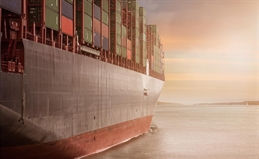
The liner shipping industry is ready for the implementation of the EU ETS Maritime with the World Shipping Council (WSC) noting that the sector has already begun investing in the transition to zero GHG fuels in a bid to decarbonise shipping.
"The European Parliament, Council and Commission reached a preliminary agreement on maritime elements of the EU ETS," WSC said.
The trade association representing the international liner shipping industry noted that including the maritime sector in the EU ETS will encourage shipping's journey towards decarbonisation as well as accelerate emission reductions among non-maritime sectors.
The EU ETS is a cornerstone of the EU's policy to combat climate change and its key tool for reducing greenhouse gas emissions cost-effectively. It is also the world's first major carbon market.
The provisional agreement on shipping is subject to an overall agreement on the ETS revision, later this year or next.
"Liner shipping is already investing in the transition to zero GHG fuels and is eager to operate vessels using renewably derived marine fuels distributed through a sustainable supply network," said Jim Corbett, the World Shipping Council’s (WSC) Environmental Director for Europe.
"We are ready, and we hope that the EU ETS for maritime will help drive investment in renewable energy as well as in the supply networks needed for the alternative maritime fuels necessary to make the transition," Corbette added.
The WSC also said the agreement sets in motion the next steps for the EU to make the ETS maritime truly green by including all GHGs as well as outlining steps towards a life cycle perspective.
The trade organization noted that developing a life cycle perspective on the pricing of ETS allowances will reflect not only fuel emissions when consumed but also GHG emissions from marine fuel production.
"Including all GHGs – CO2, methane and nitrous oxide - in the EU ETS is an important step. But only when the EU ETS takes a full life cycle perspective will it reach its real potential, increasing the competitiveness of truly renewable fuels," Corbett added.
"A correct price signal is key to driving investment in the green energy necessary to produce sustainable fuels. With the agreed phase-in, there is a window of opportunity to move forward with the rapid adoption of life-cycle perspectives. This will also align the EU ETS with FuelEU requirements, promoting the uptake of new fuels."
WSC noted that the EU institutions have all emphasized the importance of reaching a global agreement at the International Maritime Organisation (IMO).
It said that with the IMO MEPC 79 beginning in less than two weeks, there are a number of detailed proposals on the table for putting a price on GHG emissions on a global level.
Global regulation, increase the green energy supply
"International regulation through the UN IMO presents an opportunity to drive a global transition in line with the Paris agreement. Global regulation – an international price on carbon emissions from shipping together with other measures to drive the supply of green energy and fuels - is the fastest and most efficient route to decarbonising shipping as a whole," Corbett said.
"We urge the EU to ensure that the EU ETS is a green pathway towards global decarbonisation, and to work for effective global regulations at the IMO in December," the WSC environmental director, added.



